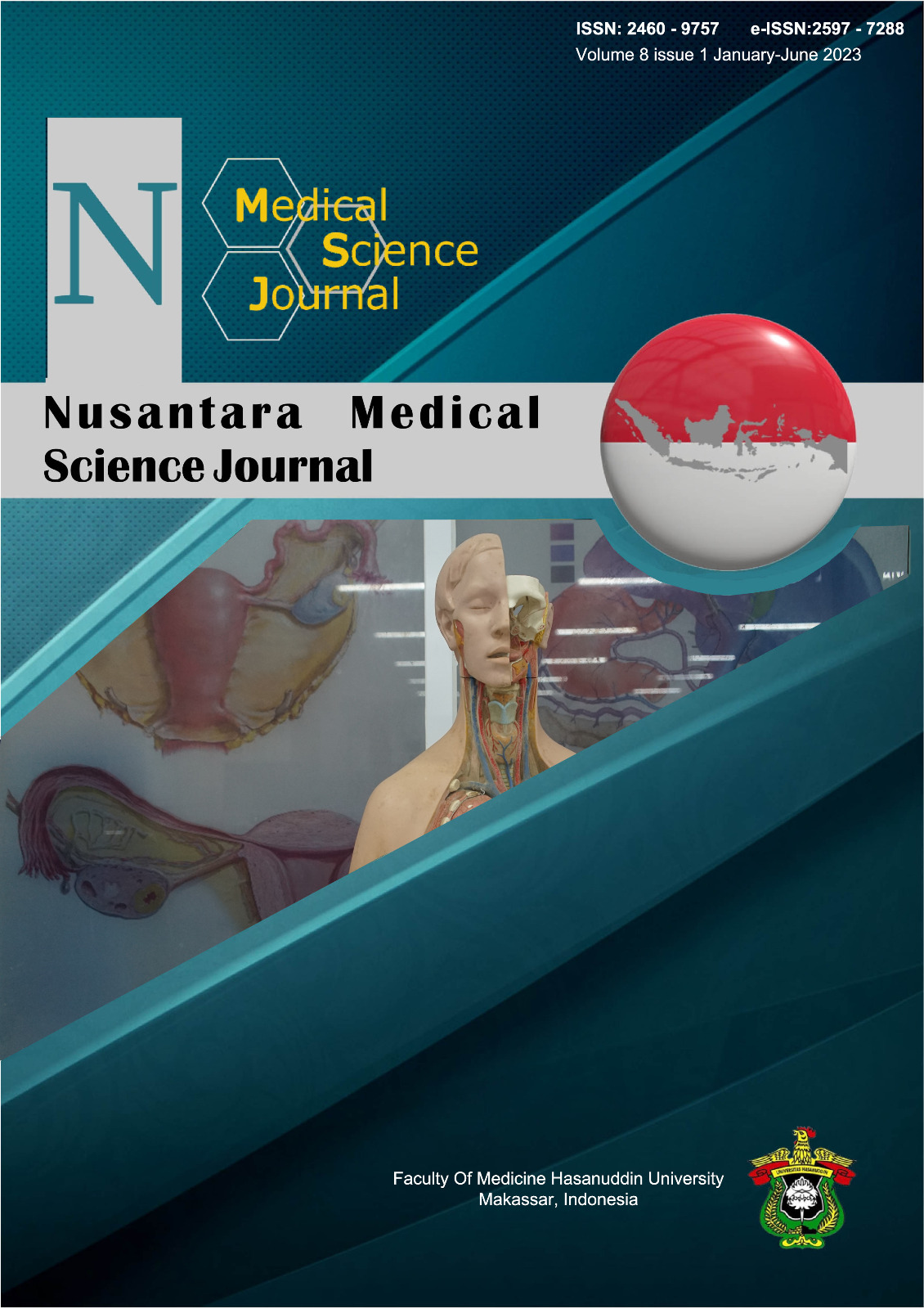Subcutaneous Endometriosis after Cesarean Section : A Case Report
DOI:
https://doi.org/10.20956/nmsj.v8i1.21634Abstract
Introduction and importance: Endometriosis is a condition in which both the stromal tissue and the functional endometrial glands are observed outside the uterine cavity. Endometriosis can be found in pelvic organs and extra-pelvic. Subcutaneous Endometriosis is a condition which may occur after surgical procedures such as cesarean section. Presentation of case: We report a 37-year-old female patient who had undergone two cesarean sections, presented with cyclic hypogastric pain and vaginal bleeding. Cyclic bleeding also occurred from the cesarean section scar since 1 year ago. Total abdominal hysterectomy, right salpingooophorectomy, left salpingectomy and wide excision of the scar were performed. Histopathology results of stromal tissue and functional endometrial glands on subcutaneous part of the skin were found. Discussion: The incidence of subcutaneous endometriosis can occur months to years after the surgical procedure with an average of about 30 months. Complaints in patients are usually in the form of a painful and enlarged abdominal mass, especially during menstruation. In establishing the diagnosis of subcutaneous endometriosis, the gold standard is pathological examination. The main management of this subcutaneous endometriosis case is a wide excision procedure by performing excision and providing a minimum clearance of 1 cm. Conclusions: Subcutaneous endometriosis is extrapelvic endometriosis, which is mainly caused by surgery, one of which is cesarean section. Establishing a definite diagnosis of subcutaneous endometriosis is difficult without any pathological examination. The main management of subcutaneous endometriosis is wide excision with a margin of 1 cm to prevent recurrence of this disease.
References
Yıldırım D, Tatar C, Doğan O, Hut A, Dönmez T, Akıncı M, et al. Post-Cesarean scar endometriosis. Turkish J Obstet Gynecol. 2018;15(1):33–8.
Ramdani A, Rais K, Rockson O, Serji B, El Harroudi T. Parietal Mass: Two Case Reports of Rare Cesarean Scar Endometriosis. Cureus. 2020;12(2):8–13.
Khachani I, Filali Adib A, Bezad R. Cesarean Scar Endometriosis: An Uncommon Surgical Complication on the Rise? Case Report and Literature Review. Case Rep Obstet Gynecol. 2017;2017:1–4.
Zhang P, Sun Y, Zhang C, Yang Y, Zhang L, Wang N, et al. Cesarean scar endometriosis: Presentation of 198 cases and literature review. BMC Womens Health. 2019;19(1):1–6.
Nigam A. Subcutaneous endometriosis: A rare cause of deep dyspareunia. BMJ Case Rep. 2014;2013–4.
Moazeni-Bistgani M. Recommending Different Treatments as Preventive Measures against Incisional Endometrioma. J Fam Reprod Heal [Internet]. 2013;7(3):105–8. Available from: https://www.ncbi.nlm.nih.gov/pubmed/24971111
Djaković I, Vuković A, Bolanća I, Vraneš HS, Kuna K. Abdominal wall endometriosis eleven years after cesarean section: Case report. Acta Clin Croat. 2017;56(1):162–5.
Laganà AS, Lucia V, Rosa L, Chiara AM, Frangež HB, Bokal EV, et al. Anxiety and depression in patients with endometriosis : impact and management challenges. Int J Women’s Heal. 2017;9:323–30.
Downloads
Published
How to Cite
Issue
Section
License
Copyright (c) 2023 Nusantara Medical Science Journal

This work is licensed under a Creative Commons Attribution 4.0 International License.









